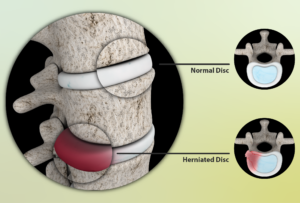
You’d better avoid a lot of bed rest, no matter how painful your herniated disc, if you want to avoid a DVT (deep vein thrombosis).
“Yes, bed rest is never indicated for people with back problems,” says Dr. Michael Perry, MD, member of the North American Spine Society and American College of Sports Medicine.
“Studies have shown bed rest for neck or back problems to be detrimental for the patient.
“Being inactive can cause serious issues to form such as blood clots. If DVT develops, it can cause a pulmonary embolism, which is extremely dangerous.”
Lying around all day in the name of pain stemming from a herniated disc is the last thing you want to do.
Pain doesn’t always mean you should take to lying around or trying to sleep it off.
It’s one thing to sleep off pain from a temporary problem, such as feminine monthly discomfort or a headache.
But a herniated disc isn’t going anywhere too soon.
You need to learn how to live with it should you opt for conservative management.

Source: myupchar. com
This means avoiding excessive bed rest or lounging around. Physical therapy is a highly recommended mode of conservative treatment.
But even if it fails, and even if you’ve decided to pursue surgery, you absolutely should not get in the habit of taking to bed rest, as this can become excessive—a major risk factor for DVT.
Part of the DVT could break off and travel to the lungs where it becomes a pulmonary embolism. The time lapse for this process is immediate.
A pulmonary embolism that’s big enough can take only moments to kill the patient — because it blocks critical blood flow involving the lungs. This can then lead to cardiac arrest.
Warning signs of a major pulmonary embolism can come on quite suddenly, and the patient could be dead before the paramedics arrive.
Key warning signs of a DVT that has embolized are: sudden difficulty breathing, chest pain and fainting.
A herniated disc, no matter how painful, combined with excessive bed rest, never mix well.










































